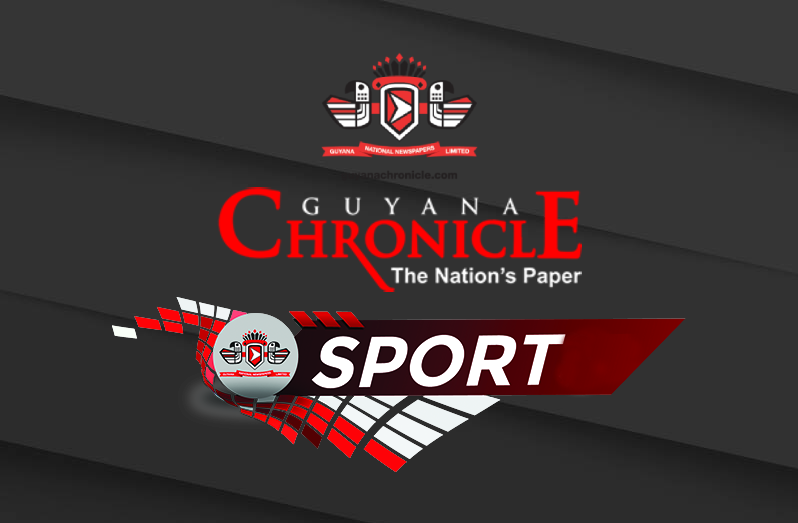SAO PAULO, Brazil (Reuters) – Brazil have won the World Cup a record five times and taken home world titles at every age level and discipline, from Under-17 to Beach football to Indoor, but one title remains elusive for this soccer-crazed nation: the Olympic gold. “Brazilian football is known throughout the world and to never have won the Olympic gold is always in our heads and it is our dream to do that and go down in history,” said goalkeeper Rafael Cabral.
“There is pressure with any big team but you can use pressure as motivation. It would be great for the country if we could win.”
The Brazil squad, all but three of whom must be under the age of 23, will not want for talent when the tournament kicks off on July 26.
Neymar, the Santos wonder boy whose trickery with the ball has brought him frequent comparisons with Pele and Lionel Messi, could be joined by team mate Paulo Henrique Ganso, Sao Paulo midfielder Lucas, Tottenham’s Sandro, AC Milan striker Alexandre Pato and Manchester United fullback Rafael.
Defenders Thiago Silva of AC Milan, Marcelo of Real Madrid and David Luiz of Chelsea are among the favourites to fill the over-age berths.
Coach Mano Menezes recently named them and 44 other players to his pre-Olympic squad, which he expects to whittle down to 18 after a trip to the United States in May and June.
Brazil are scheduled to play the United States, Mexico and Argentina over a 10-day period and Menezes promised his Olympic side would bear a striking resemblance to the big team.
“When we name our Olympic squad, you are going to look at it and say: that is almost the full national side,” he told Brazilian newspaper O Globo this month.
NEAR MISSES
Brazil have come close to winning the Olympic gold, losing finals in 1984 and 1988, and going down at the semi-final stage in 1996 and 2008. Some of the country’s best players tried and failed, including Ronaldo, Romario, Ronaldinho Gaucho, Roberto Carlos, Bebeto, Taffarel and Rivaldo.
“It’s a tournament where things just don’t go right for us,” said Juninho, the former Middlesbrough player who took part in the 1996 Games. “Maybe we don’t prepare as well as we do for the World Cup. It’s not a lack of quality.”
The Olympic football competition has changed considerably since three informal club sides played for the first gold medal in 1900. National teams began competing in 1908 and, once football went global, the first serious tournaments were won by Uruguay, in 1924 and 1928.
After World War 11, Communist bloc nations dominated because Olympic competitors were supposed to be amateur and those playing for Soviet-backed nations were, as state employees, ostensibly unpaid for their sporting endeavours. Eastern European nations won every competition except one between 1952 and 1988.
Professional footballers were permitted to play at the Olympics for the first time in 1984 but football’s governing body FIFA did not want the competition to eclipse the World Cup and initially restricted it to those with fewer than five international caps.
In 1988, FIFA allowed only European and South American players who had not played in a World Cup and four years later it turned the competition into what it is today – a tournament for Under-23s with three over-age players permitted.
Brazil’s attempts at winning have been half-hearted or poorly planned and frequently dramatic.
In 1984, when Brazil’s big teams would not release their leading players, the Brazilian Football Confederation called up the entire Internacional side who had just been knocked out of the domestic league competition. The team went all the way to the final in Los Angeles before losing 2-0 to France.
The most memorable defeat came 12 years later in Atlanta at the hands of Nigeria. ‘A’ team featuring Ronaldo, Rivaldo and Roberto Carlos who led the semi-final 3-1 with 14 minutes to go but crumbled at the climax, conceding two late goals in normal time and a deciding golden goal to Kanu three minutes into extra time.
INEXPERIENCED SQUAD
Over-confidence may also have played a part. In 2000, manager Vanderlei Luxemburgo refused to take any over-age players, believing his young squad were good enough to win without any added experience.
The youngsters muddled through the group games only to get knocked out at the next stage by a Cameroon golden goal.
“I think that since Brazil has always won, the World Cup, the Copa America, the Confederations Cup, you end up having a certain self-confidence,” said Athirson, the former Flamengo and Juventus fullback who played in that game.
“You think you can go out there and win but things have changed. The Africans are stronger, the Europeans are strong. That wasn’t always the case but it is now.”
Athirson acknowledged that much of the pressure to win the Olympic gold came from the players themselves.
“When you play for Brazil there are always huge demands and an obligation to win, and that creates pressure,” he said. “The pressure comes from the players themselves to bring this title home. It is not a question of extra pressure from the fans or directors. I think (the failure) is psychological.”
The pressure at this year’s Olympics will be nothing compared to 2014, when Brazil seek to win the World Cup on their home turf, so London is in many ways the perfect test. Players who can handle the attention in England will be in pole position for the even greater challenge two years on.
“We know that if we win, the chances of being selected for the World Cup increase,” said Santos keeper Cabral. “If we don’t, the chances go down. That means we will be even more motivated to do well.”



.jpg)









